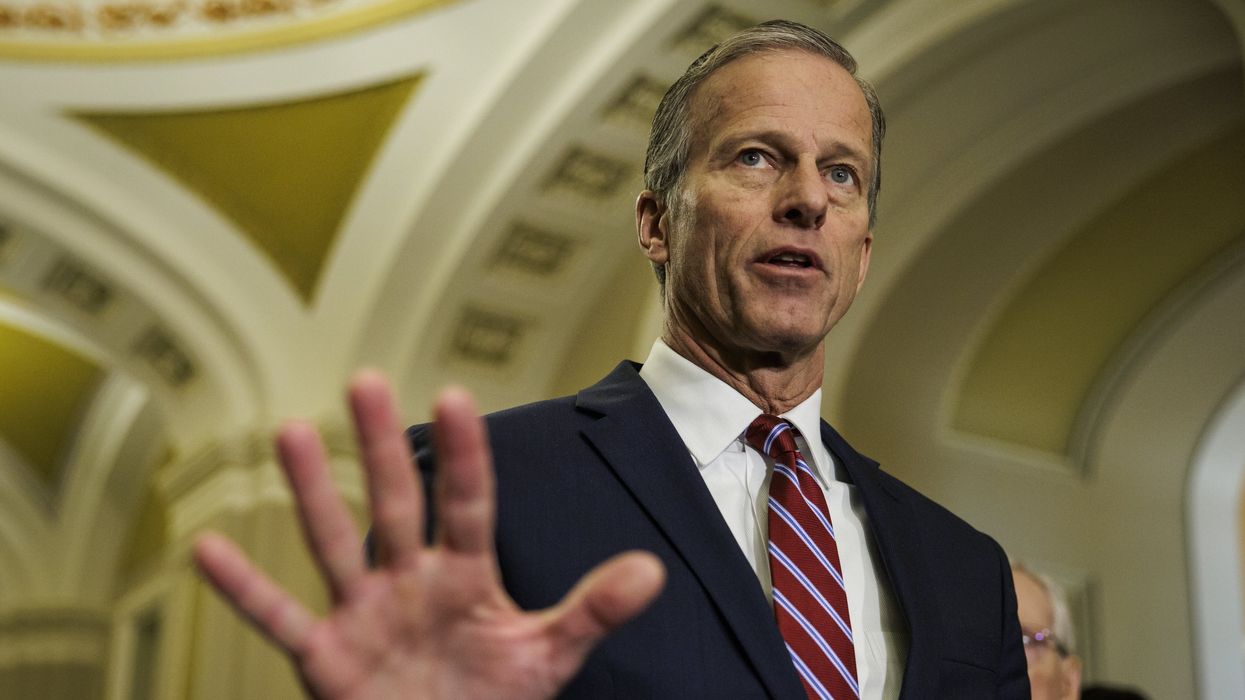
© 2025 Blaze Media LLC. All rights reserved.
Travel to any major metropolitan area in the United States and you will undoubtedly see some of the country's fastest-growing entrepreneurial opportunities: street vending.
The option to trade in an expensive storefront for a cheaper, more mobile business option has attracted many business owners to parking lots and street corners once reserved only for hot dog vendors. Nowadays, you can get everything from kabobs to cupcakes to-go out of the back a food truck. But many American cities are cracking down on these novelty businesses to prevent competition with brick-and-mortar establishments and to collect revenues from renting out public spaces.
In Atlanta, Larry Miller and Stanley Hambrick have made names for themselves with their well-known vending businesses located just outside the Atlanta Braves baseball stadium. Although their businesses create jobs and cater to customers, the city of Atlanta recently decided assign a single company to regulate all public-property vending. Now, that company is threatening to squash Miller and Hambrick's businesses to build rented kiosks so the city can collect rent of almost $20,000 a year:
Miller and Hambrick's story is not unique. Many American cities have set up roadblocks to this expanding business option, including a number that have approved anti-competitive restrictions on vending.
To protect the economic liberty of all Georgians, Larry and Stanley have joined with the Institute for Justice to challenge Atlanta's vending monopoly. Their lawsuit, filed today in the Superior Court for Fulton County, Georgia, is the second case in the Institute's National Street Vending Initiative.
In a recently released report, the Institute for Justice looked at America's 50 largest cities and found that the majority of them have multiple onerous regulations on vendors:
- Eleven of these cities ban vending on public property for some or all goods, limiting the places where vendors can sell and forcing them to partner with private property owners to operate—or to vend anyway and face fines or worse.- In 33 large cities, entire areas are off-limits to vendors, often including potentially lucrative areas such as downtown commercial districts or streets around sporting venues.
- Twenty major cities ban vendors from setting up near brick-and-mortar businesses selling the same or similar goods.
- Five of the 50 largest cities prevent mobile vendors from stopping and parking unless flagged by a customer, making it difficult for vendors to establish regular stops or easily connect with buyers.
- In 19 large cities, mobile vendors may stay in one spot for only small amounts of time, forcing vendors to spend much of their time moving instead of selling.
Click here to learn more about city regulations on street vendors across the country.
What do you think? Take our poll:
Want to leave a tip?
We answer to you. Help keep our content free of advertisers and big tech censorship by leaving a tip today.
Want to join the conversation?
Already a subscriber?
more stories
Sign up for the Blaze newsletter
By signing up, you agree to our Privacy Policy and Terms of Use, and agree to receive content that may sometimes include advertisements. You may opt out at any time.
Related Content
© 2025 Blaze Media LLC. All rights reserved.
Get the stories that matter most delivered directly to your inbox.
By signing up, you agree to our Privacy Policy and Terms of Use, and agree to receive content that may sometimes include advertisements. You may opt out at any time.





